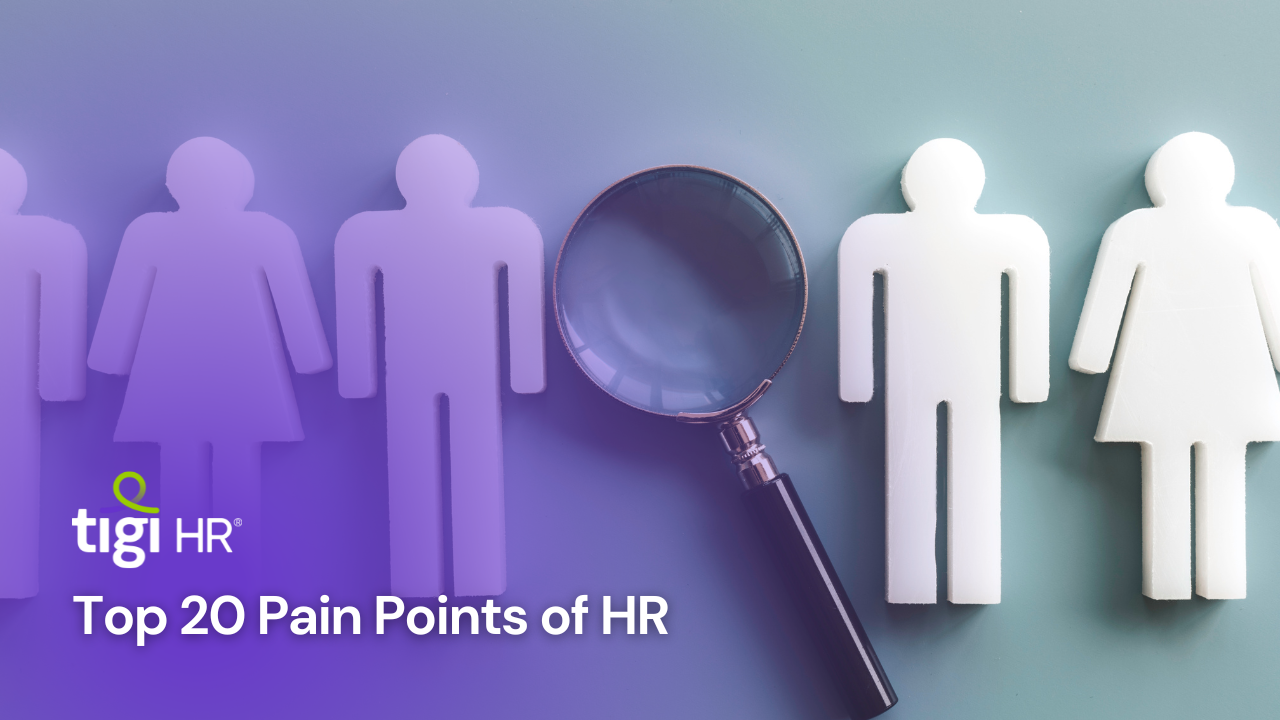Human Resources (HR) is the bedrock of any successful organization, serving as the backbone for recruitment, employee management, and fostering a positive workplace culture. However, the field is not without its challenges. In this article, we will delve into the top 20 pain points of HR professionals commonly face, shedding light on these obstacles and exploring potential solutions.
List of 20 Pain Points of HR
Talent Acquisition Woes
HR departments often grapple with the arduous task of finding the right candidates for the job. Competition for top talent is fierce, and crafting compelling job descriptions and conducting effective interviews becomes crucial.
Candidate Screening
Sifting through a sea of resumes to identify the most suitable candidates can be time-consuming and challenging. AI-powered tools and applicant tracking systems can streamline this process.
Diversity and Inclusion
Fostering an inclusive work environment is essential. HR professionals must ensure that diversity is not just a buzzword but an integral part of the company culture.
Employee Engagement
Maintaining a motivated and engaged workforce is pivotal for productivity. HR faces the challenge of creating programs and initiatives that keep employees invested in their roles.
Performance Management
Striking the right balance between recognizing high-performing employees and addressing underperformance is a delicate task. Regular feedback and setting clear goals can mitigate this challenge.
Learning and Development
Continuous upskilling is vital in today’s rapidly evolving job landscape. HR must devise training programs that enhance employee skills and align with organizational goals.
Workplace Conflict Resolution
Tensions between colleagues are inevitable. HR needs to handle conflicts impartially, fostering a healthy work environment.
Remote Work Transition
The rise of remote work has introduced a new set of challenges, from maintaining communication to monitoring productivity. HR must adapt policies and practices accordingly.
Adherence to Labor Laws
Navigating the legal landscape of labor laws and regulations is a complex task. Adhering to regulations is vital to prevent potential legal consequences.
Compensation and Benefits
Creating a fair and competitive compensation structure while considering the budget can be a tightrope walk. Benchmarking against industry standards can help strike the right balance.
Work-Life Balance
Promoting work-life balance enhances employee well-being. HR should champion policies that prevent burnout and support mental health.
Succession Planning
Identifying and grooming future leaders within the organization is a long-term challenge. HR plays a pivotal role in succession planning to ensure continuity.
HR Technology Integration
Embracing technology can streamline HR processes, but integrating various software and platforms can be overwhelming. A unified HR tech strategy is crucial.
Change Management
Implementing organizational changes can face resistance. HR’s role in facilitating smooth transitions and addressing concerns is pivotal.
Data Security and Privacy
Managing employee data in compliance with data protection laws is a critical concern. HR must safeguard sensitive information from breaches.
Employee Well-being
Beyond physical health, employee well-being encompasses mental, emotional, and social aspects. HR must implement initiatives that support holistic well-being.
Micromanagement Challenges
Dealing with micromanagers and fostering a sense of autonomy among employees requires HR intervention. Leadership training can address this issue.
Managing Remote Teams
With remote work becoming more prevalent, HR must find ways to manage and support dispersed teams effectively.
Workplace Communication
Miscommunication can lead to misunderstandings and conflicts. HR can bridge gaps by promoting transparent and open communication channels.
Retaining Top Talent
Once top talent is onboard, HR faces the challenge of retaining them. This involves offering growth opportunities, recognition, and a positive work environment.
Conclusion
The realm of HR is multifaceted, filled with challenges that require proactive strategies and creative solutions. By acknowledging and addressing these 20 pain points, HR professionals can contribute significantly to the success of their organizations. In an ever-evolving business landscape, adapting to change, leveraging technology, and fostering a people-centric approach will be key to overcoming these obstacles and thriving in the HR field.
What benefits do high-quality engineering recruitment services offer businesses?
Find High-Quality Engineering Recruitment Services: Setting Your Business Apart
High-quality engineering recruitment services offer crucial advantages in today’s competitive business landscape. These agencies provide deep industry understanding, access to top-tier talent networks, expertise in specialized fields, streamlined recruitment processes, enhanced employer branding, and the ability to focus on core business goals. Partnering with such agencies ensures access to skilled engineers, driving business growth and innovation.
Find trusted recruitment agencies: Click here
Also Explore: Hire Talent Now , Find Jobs Now





